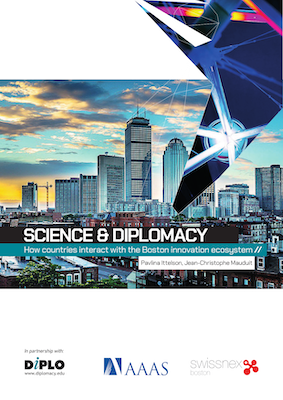
Note: This article is a part of the publication ‘Science diplomacy capacity development: Reflections on Diplo’s 2021 course and the road ahead’
From the moment that I learned about Diplo’s mission of supporting the United Nations’ (UN) sustainable development goals (SDGs) through stronger science-diplomacy coordination, I knew that I wanted to get involved. The experience did not disappoint. Creating a science-diplomacy course with other passionate and knowledgeable scientists from different fields under the guidance of experts in international diplomacy, Katharina Höne and Pavlina Ittelson, was thought-provoking, illuminating, and enjoyable. The different modules covered global health, renewable energy, climate, and ecosystems respectively, and were each written by a scientist with expertise in that topic.
The collaborative objectives of this project spoke to my own personal and professional priorities, as a scientist and as a citizen of the world. With an international upbringing, spanning four states and three countries, I understand the interconnected dependency of our global community. Witnessing devastating pollution and flooding in the developing world during my formative years highlighted the urgent need to protect society from preventable disasters by reaching across divides. Having family across the globe, I view international cooperation as indispensable to producing equitable, constructive, and durable solutions to our shared challenges. Our team’s collaborative sessions provided an exchange of valuable perspectives and improved our knowledge, assumptions, and communication styles.
While weaving my atmospheric and climate knowledge together with the history of international environmental efforts for this module, I was able to gain and share new insights into the history of science-diplomacy including its successes and set-backs. Particularly, delving into case-studies of regional climate efforts for the training module provided our team and the course participants with concrete examples of achievable climate progress through science-diplomacy. It was especially gratifying to observe participants engaging with the module text as they shared many valuable and relevant insights from their own regions and experiences.
Going forward, I hope to continue building on this work by remaining involved in the science-diplomacy and science-policy interface. Unprecedented challenges such as the current global pandemic and the climate crisis are glaring examples of the urgent and consistent need for ‘science in diplomacy’ for our shared well-being. While past educational and professional systems have separately siloed science and diplomacy work, I hope that this project has strengthened the science-diplomacy bidirectional pipeline for the module authors and course participants.
As an atmospheric scientist, I am particularly aware that the earth is a closed system, meaning that any perturbations to the climate balance will affect the entire globe. This means that the climate crisis is a shared challenge that requires an immediate, sustained, unified, global effort across professional expertise, international boundaries, and political divides, for generations to come. Navigating these disparate perspectives will require skilled professionals who are trained to work at the science-diplomacy interface.
The collaborative project of producing this science-diplomacy course and its modules has invited the expertise of scientists into the diplomatic conversation, while also providing participating scientists with insights into translating relevant science into useful, timely, and targeted language to reach the intended audience. I believe that the experience that our team and participants gained through the collaborative effort of producing and sharing this training module on climate change will strengthen public trust in science and our collective contributions toward the interrelated objectives of the UN SDGs.






